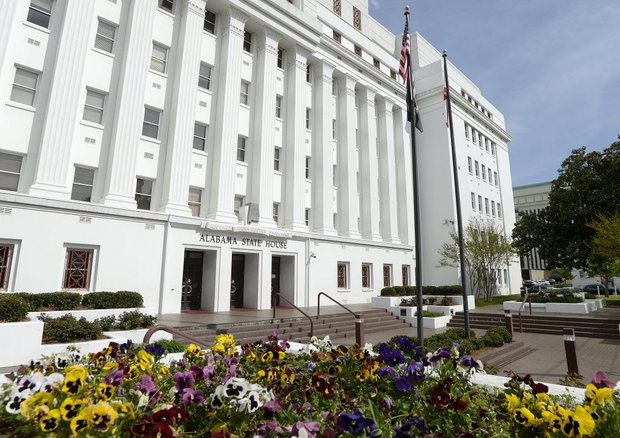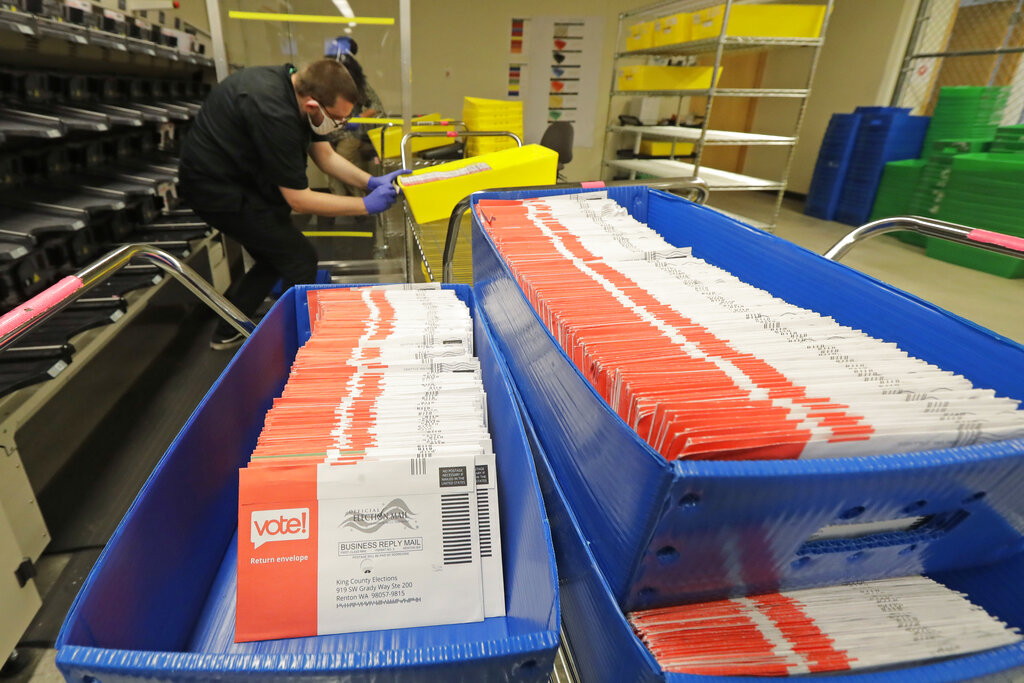Paul DeMarco: While New Year upon us, Alabama state leaders must to continue to address past issues

A new year always brings hope for a fresh start in one’s life. For Alabama state leaders, 2024 requires going back to the basics to address chronic issues that have plagued the state, such as crime, education, and poverty. State representatives and senators made excellent progress in passing bills that strengthened the Alabama criminal justice system. Laws to stiffen penalties for fentanyl trafficking, retail theft, and gang violence became law. In addition, the state’s generous good time laws were amended to reduce the amount of time inmates could earn for an early release from prison. This session lawmakers need to address the problems with the state’s work release program that has allowed felons convicted of murder out unsupervised on the streets. Legislators also have to stop the slew of bills that have been pre-filed to gut the current parole board’s ability to keep prisoners behind board who had been convicted of heinous crimes. Week after week, the headlines in 2023 have reported the violence in our state which should focus legislators on making public safety a priority. As for education, this past year a historic $8.8 billion education budget and $2.8 billion supplemental allocation were passed to fund state public education. The monies have been used to pay for additional math and science academic enhancement, pre-k, teachers, and salaries. Even with the massive infusion of money, the state is still ranked low in scholastic achievement, and this past year, the Alabama Department of Education reported that overall public schools actually declined from the year before. Thus, in this upcoming session, there will be a big push for education reform that includes school choice. The question will be what it actually looks like and how, ultimately, it will make a difference in our state. Finally, we are three years past when Covid was at its peak, and the Nation was shut down. Like other states, our small businesses and their employees suffered through the mandated lockdowns. Yet, the economy is now thriving as Alabama continues to attract new companies and existing businesses grow. Alabama Governor Kay Ivey reports that there has now been $42 billion in new capital investment that has led to both the most people employed in state history and the lowest unemployment. The state continues to receive allocations for its economic development efforts. The strong economy has lead to increased revenue, which lawmakers have used to fund more state services. And there are for hire signs everywhere you go, folks have to just agree to take those jobs. And while we approach a new year, there are plenty of reasons to believe 2024 will be another good one for Alabama business owners and their employees. Thus, while there is optimism for the new year, Alabama state leaders must address the chronic issues are state has to move our state forward. Paul DeMarco is a former member of the Alabama House of Representatives and can be found on X formerly Twitter at @Paul_DeMarco
Daniel Sutter: Recent poll highlights perils of voting by mail

A recent Heartland Institute and Rasmussen Reports poll found widespread irregularities in the 2020 election. While whether this proves theft of the presidential election is debatable, it certainly demonstrates serious issues with voting by mail. The poll, found on the Rasmussen Reports website, was conducted during the first week of December with 1,085 respondents. Thirty percent of respondents claimed to have voted by mail in 2020; some questions were asked only of mail voters. The margin of error was 3 percentage points. The poll has received considerable attention, including a Truth Social post from President Donald Trump, “This is the biggest story of the year!” The headline results: 21% of mail voters answered affirmatively to, “did you fill out a ballot, in part or in full, on behalf of a friend or family member?” 17% said that they signed “a ballot or ballot envelope on behalf of a friend or a family member.” 17% of all respondents reported voting, “in a state where you were no longer a permanent resident.” 8% said they were offered a payment or reward for voting by “a friend, family member, or organization.” A first consideration is the potential for deliberately incorrect responses. Some respondents might have been reluctant to report misconduct, even in a survey. But I could also see Trump supporters answering to undermine the credibility of the contest. The official margin of error may not be accurate. Some of this fraud is not terribly heinous. Assisting a parent or grandparent confused about marking the ballot or signing their ballot for them at the post office would qualify as fraud. The one-in-five fraudulent ballots headline does not involve votes being changed or ineligible persons voting. Additionally, the irregularities would not necessarily benefit either party. A second-order advantage for President Joe Biden, who received a higher share of the mail-in than in-person votes, might exist, even if Democrats and Republicans were equally likely to commit inadvertent fraud. So, excluding all fraudulent ballots might have changed some swing state outcomes. Payments for voting concern me the most. Vote selling has some merits but is not currently allowed. Mail-in ballots let voters show others how they voted, enabling vote purchases. Yet survey responses may be based on joking offers by relatives or friends. The allegations of fraud by President Trump, Rudy Guiliani, and Sydney Powell involved boxes of bogus votes and rigged voting machines. This survey offers no evidence of such misconduct, but clearly indicates vulnerabilities of mail-in voting. A voting process yielding one in five fraudulent ballots does not inspire confidence. And the inadvertent fraud is so easy, intentional fraud must also be possible. Mail-in voting helped over 20 million more Americans vote in 2020 than 2016. Economics predicts that more people will vote (or do anything) when the cost falls. Changes in how we vote (by mail, electronically, or making election day a holiday) which increase turnout and yield different results than if fewer persons voted is not fraudulent. The unfamiliar is often frightening, so many Americans naturally worried about security with voting by mail. These fears, even if unfounded, are sincere. And yet these concerns were not taken seriously and patiently addressed. Instead, anyone voicing concerns was vilified as an election denier. I think President Trump opportunistically exploited election integrity concerns. The promised evidence of fraud was never produced. And since Rudy Guiliani has been sued into bankruptcy over defamation claims, I presume evidence of rigging is nonexistent. What can be done to secure elections? I do not view eliminating voting by mail (or opposing technology generally) as a path forward. Continuous updating of voter registration rolls should reduce voting in states where people no longer live. We should make people request a mail ballot. And Justin Haskins of the Heartland Institute suggests notarizing mail-in ballots, with free notary services available. Democracy ultimately de-escalates political conflict. People forego extralegal means of conflict and wait until the next election. If we view other Americans as fellow citizens, we should ensure everyone can vote and have confidence in the process. We are a long way from this goal. Daniel Sutter is the Charles G. Koch Professor of Economics with the Manuel H. Johnson Center for Political Economy at Troy University and host of Econversations on TrojanVision. The opinions expressed in this column are the author’s and do not necessarily reflect the views of Troy University.
House Committee releases contempt of Congress resolution for Hunter Biden

House Oversight Chair Representative James Comer, released a resolution Monday recommending the U.S. House of Representatives find the president’s son, Hunter Biden, in contempt of Congress after he skipped a deposition last month connected to the ongoing impeachment inquiry into his father. The Oversight Committee is scheduled to consider the resolution Wednesday before likely sending it to the House floor. These kind of proceedings for the president’s son are largely uncharted waters but could lead to federal criminal charges for Hunter, who already faces criminal charges for tax and gun crime allegations. Hunter ignored the Congressional subpoena and skipped his Dec. 13 deposition. Instead, he gave a brief speech to reporters outside the U.S. Capitol building. Hunter’s legal team has said he is willing to testify publicly but did not want his words to be twisted by lawmakers via closed-door testimony. Comer has responded that Hunter must comply with the subpoena for the private testimony but will likely be given his opportunity to testify publicly as well. The subpoena came as mounting evidence shows that the Biden family an associates received more than $20 million from overseas entities in China, Russia, Ukraine and more. IRS whistleblowers also testified that the president’s justice department leaned on the IRS to slow and hinder the investigation into Hunter. The key question is whether that money was then funneled to the current president. Some evidence shows that the president received checks totaling $240,000 from his family as well as what appears to be a monthly payment of nearly $1,400. But it remains unclear how directly or if those funds were tied to the overseas dealings. The president has denied that he financially benefited from any of his son’s dealings overseas. Comer said the subpoenas and ongoing investigation will get to the bottom of just that. “Mr. Biden’s testimony is a critical component of the impeachment inquiry into, among other things, whether Joseph R. Biden, Jr., as Vice President and/or President… took any official action or effected any change in government policy because of money or other things of value provided to himself or his family,” the resolution said. The resolution also said Hunter’s testimony will help lawmakers determine whether the president “abused his office of public trust by providing foreign interests with access to him and his office in exchange for payments to his family or him; or…abused his office of public trust by knowingly participating in a scheme to enrich himself or his family by giving foreign interests the impression that they would receive access to him and his office in exchange for payments to his family or him.” Written by:Casey Harper Republished with permission from The Center Square.


